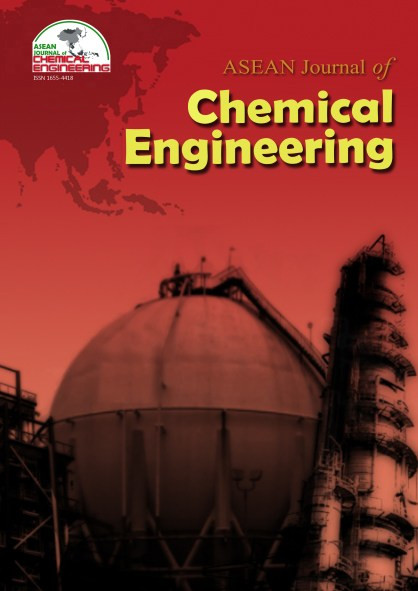Coal Fly Ash-based Geopolymer Spheres Coated with Amoxicillin and Nanosilver for Potential Antibacterial Applications
Abstract
Geopolymers are emerging “green” materials for its low embodied energy and carbon footprint, and its potential to valorize wastes, such as coal fly ash. It is an inorganic cementitious material formed from the polymerization of aluminosilicates in an activating solution such as that of alkali hydroxides or silicates. Their superior mechanical properties, including heat and fire resistance make them an excellent material for diverse applications. Recent studies have also exploited the tunable open porosity and adsorbing properties of geopolymers. Our work thus explores the potential of porous geopolymer spheres for antibacterial applications. These spheres were synthesized using coal fly ash as the geopolymer precursor and the porous surface is coated with either amoxicillin or silver nanoparticles (AgNPs) adsorbed in the matrix. For the AgNP geopolymer spheres, SEM images show spherical nanostructures when using ascorbic acid as a reducing agent, while spherical, cubical, and wire structures were observed when reduced using NaBH4. Indication from UV-Vis results also suggests the gradual release of both amoxicillin and AgNPs in the solution from the functionalized geopolymer spheres. Using E. Coli as the test organism for a modified disk diffusion assay, both showed zones of inhibition against the bacteria. Further tests on antibacterial application of AgNP geopolymer spheres show their effectiveness to kill at least 95% of the E. coli in a water sample initially containing 105 cfu/mL in just 30 minutes.References
2. Armayani., M., Akbar Pratama, M., & Subaer. (2017). “The Properties of Nano Silver (Ag)-Geopolymer as Antibacterial Composite for Functional Surface Materials”. MATEC Web of Conferences, 97, 01010.
3. Baker, C., Pradhan, A., Pakstis, L., Pochan, D., Shah, SI. (2005). “Synthesis and Antibacterial Properties of Silver Nanoparticles”. J Nanosci Nanotechnol. 5(2):244–249.
4. Chindaprasirt, P., & Rattanasak, U. (2016). “Improvement of durability of cement pipe with high calcium fly ash geopolymer covering”. Construction and Building Materials, 112, 956-961.
5. Cong, F-Z., Wei, H., Tian, X-R., Xu, H-X. (2012). “A facile synthesis of branched silver nanowire structures and its applications in surface-enhanced Raman scattering”. Front Phys. 7(5):521–526.
6. Davidovits, J. (1991). “Geopolymers”. Journal of Thermal Analysis, 37(8), 1633–1656.
7. Dela Cerna, K. Janairo, J.I., Promentilla M.A., (2018). “Development of nanosilver-coated geopolymer beads (AgGP) from fly ash and baluko shells for antimicrobial applications”. MATEC Web of Conferences 268, 05003.
8. De Muynck, W., Belie, ND, Verstraete, W. (2008). “Antimicrobial mortar surfaces for the improvement of hygienic conditions”. Journal of Applied Microbiology. 108: 62-72.
9. Department of Energy 2012. List of Existing Power Plants-Luzon. Available from https://www.doe.gov.ph/doe_files/pdf/ 01_Energy_Situationer/2012-Power- Plants-Luzon.pdf
10. Feng, Q.L., Wu J., Chen, G.Q., Cui, F.Z., Kim, T.N., Kim, J.O. (2000). “A mechanistic study of the antibacterial effect of silver ions on Escherichia coli and Staphylococcus aureus”. Journal of Biomedical Materials Research. 52(4):662–668.
11. Geopolymer Institute. What is a geopolymer? Introduction. https://www.geopolymer.org/science/i ntroduction/ (accessed Oct 10, 2018).
12. Khodashenas, B., Ghorbani, H.R. (2015. “Synthesis of silver nanoparticles with different shapes”. Arab J Chem.
13. Li W-R, Xie X-B, Shi Q-S, Zeng H-Y, Ou-Yang Y-S, Chen Y-B. (2009). “Antibacterial activity and mechanism of silver nanoparticles on Escherichia coli”. Applied Microbiology and Biotechnology. 85(4):1115–1122.
14. Pyatenko A, Yamaguchi M, Suzuki M. (2007). “Synthesis of spherical silver nanoparticles with controllable sizes in aqueous solutions”. J. Phys Chem C. 111(22):7910–7917.
15. Singh, B.; Ishwarya, G.; Gupta, M.; Bhattacharyya, S. (2015). “Geopolymer concrete: A review of some recent developments”. Constr. Build. Mater. 2015, 85, 78–90.
16. Sondi, I., Salopek-Sondi, B. (2004). “Silver nanoparticles as antimicrobial agent: A case study on E. coli as a model for Gram-negative bacteria”. J. Colloid Interface Sci. 275(1):177–182.
17. Sriram, M.I., Kalishwaralal, K., Barathmanikanth, S., Gurunathani, S. (2012). “Size-based cytotoxicity of silver nanoparticles in bovine retinal endothelial cells”. Nanosci Methods. 1(1):56–77.
18. Stoimenov, P.K., Klinger, R.L., Marchin, G.L., Klabunde, K.J. (2002). “Metal oxide nanoparticles as bactericidal agents”. Langmuir. 18(17):6679–6686.
19. Sun, Y., Xia, Y., Melillo, J.M., Bowles, F.P., Melillo, J.M., Steudler, P.A., Rayment, M., Trumbore, S.E., Amundson, R., Bergh, J., et al. (2002). “Shape-controlled synthesis of gold and silver nanoparticles”. Science. 298(5601):2176–9.
20. Tang, Q., Ge, Y.-Y., Wang, K.-T., He, Y., & Cui, X.-M. (2015). “Preparation of porous P-type zeolite spheres with suspension solidification method”. Materials Letters, 161, 558–560.
21. Temuujin, J., Rickard, W., Lee, M., & van Riessen, A. (2011). “Preparation and thermal properties of fire resistant metakaolin-based geopolymer-type coatings”. Journal of Non-Crystalline Solids, 357(5), 1399–1404.
22. Tigue, A.A.S., Malenab, R.A.J., Dungca, J.R., Yu, D.E.C., Promentilla, M.A.B. (2018). “Chemical stability and leaching behavior of one-part geopolymer from soil and coal fly ash mixtures”. Minerals, 8 (9), 411.
23. Tulve, N.S., Stefaniak, A.B., Vance, M.E., Rogers, K., Mwilu, S., Lebouf, R.F., Schwegler-berry, D., Willis, R., Thomas, T. (2015). “Characterization of silver nanoparticles in selected consumer products and its relevance for predicting children’s potential exposures”. 218(3):345–357.
24. Williams, D. (2015). Philippines set for 23 new coal-fired power plants. Power Engineering International. Available from https://www.powerengineeringint.com /articles/2015/06/23-new-coal-fired- power-plants-for-philippines.ht
Copyright holder for articles is ASEAN Journal of Chemical Engineering. Articles published in ASEAN J. Chem. Eng. are distributed under a Creative Commons Attribution-NonCommercial 4.0 International (CC BY-NC 4.0) license.
Authors agree to transfer all copyright rights in and to the above work to the ASEAN Journal of Chemical Engineering Editorial Board so that the Editorial Board shall have the right to publish the work for non-profit use in any media or form. In return, authors retain: (1) all proprietary rights other than copyright; (2) re-use of all or part of the above paper in their other work; (3) right to reproduce or authorize others to reproduce the above paper for authors’ personal use or for company use if the source and the journal copyright notice is indicated, and if the reproduction is not made for the purpose of sale.



